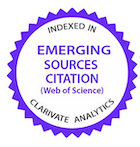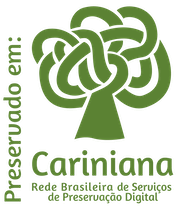Produção de ácidos graxos voláteis, avaliada pela técnica semiautomática in vitro, na dieta de ruminantes com diferentes fontes de carboidratos na fração volumosa
Palavras-chave:
nutrição animalResumo
Avaliou-se o efeito da adição ou não de fontes de carboidratos (milho dentado ou milho duro ou polpa de citros) a forragens (silagem de milho, silagem de sorgo + silagem de resíduo de milho, capim-elefante, cana-de-açúcar, silagem de resíduo de milho sem adição das fontes de carboidratos), pela técnica in vitro semiautomática de produção de gases em função da produção de ácidos graxos voláteis (AGVs) nos tempos de incubação de 2, 6, 12 e 24 horas. Utilizou-se o delineamento inteiramente casualizado em parcelas subdivididas com o fator tempo nas subparcelas. As médias da produção de gases foram tratadas pelos parâmetros de France. O acetato foi o AGV de maior produção. Observou-se correlação alta e positiva entre todos os AGVs no presente estudo.Palavras-chaveS: Acetato, polpa de citros, subproduto.
Downloads
Não há dados estatísticos.
Downloads
Publicado
2009-07-02
Como Citar
MOREIRA, Paulo Cesar; REIS, Ronaldo Braga; REZENDE, Pedro Leonardo de Paula; MENDONÇA, Alberto Correa; WASCHECK, Roberto de Camargo; MARTINS, Apóstolo Ferreira. Produção de ácidos graxos voláteis, avaliada pela técnica semiautomática in vitro, na dieta de ruminantes com diferentes fontes de carboidratos na fração volumosa. Ciência Animal Brasileira / Brazilian Animal Science, Goiânia, v. 10, n. 2, p. 413–424, 2009. Disponível em: https://revistas.ufg.br/vet/article/view/1036. Acesso em: 11 fev. 2026.
Edição
Seção
Produção Animal
Licença
Copyright (c) 2009 Ciência Animal Brasileira / Brazilian Animal Science

Este trabalho está licenciado sob uma licença Creative Commons Attribution 4.0 International License.
Autores que publicam nesta revista concordam com os seguintes termos:
- Autores mantém os direitos autorais e concedem à revista o direito de primeira publicação, com o trabalho simultaneamente licenciado sob a Licença Creative Commons Attribution que permite o compartilhamento do trabalho com reconhecimento da autoria e publicação inicial nesta revista.
- Autores têm autorização para assumir contratos adicionais separadamente, para distribuição não-exclusiva da versão do trabalho publicada nesta revista (ex.: publicar em repositório institucional ou como capítulo de livro), com reconhecimento de autoria e publicação inicial nesta revista.
- Autores têm permissão e são estimulados a publicar e distribuir seu trabalho online (ex.: em repositórios institucionais ou na sua página pessoal) a qualquer ponto antes ou durante o processo editorial, já que isso pode gerar alterações produtivas, bem como aumentar o impacto e a citação do trabalho publicado (Veja O Efeito do Acesso Livre).


























